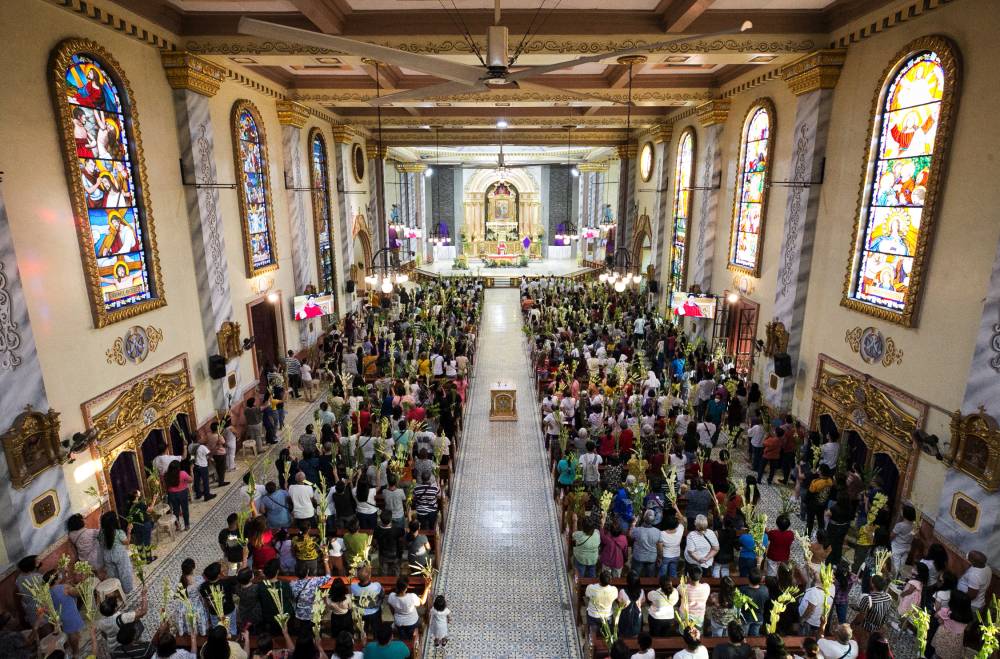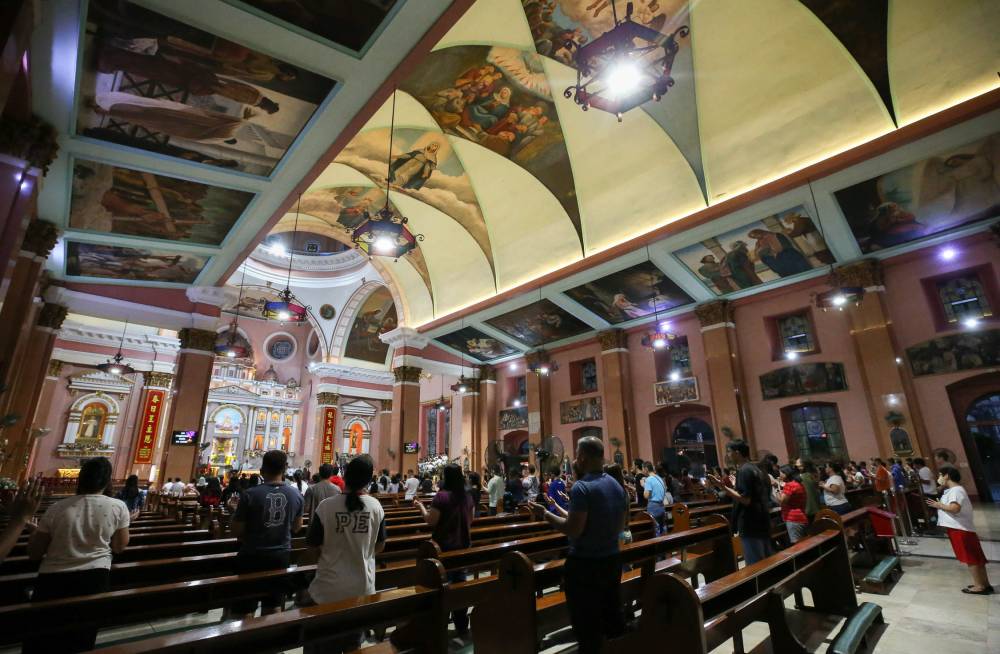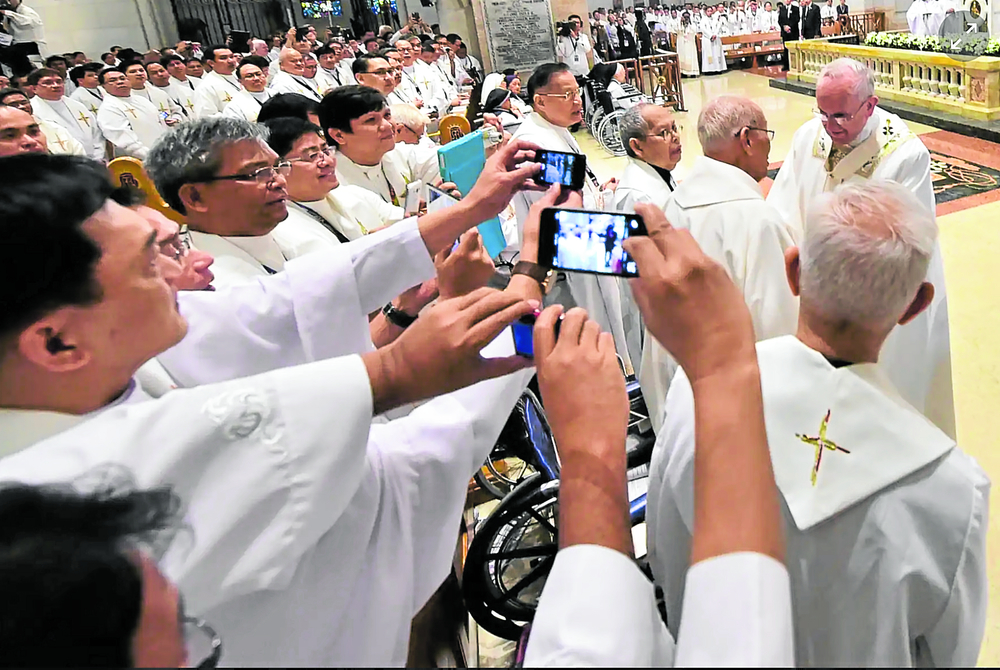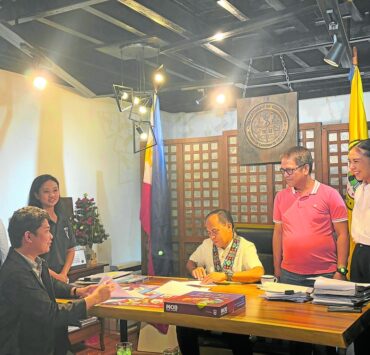5 ways Filipino Catholics disrespect the Mass

The Philippines prides itself in being a Catholic country, but as a Catholic religious educator, I find that very hard to believe. Why? It’s because we live in a culture where cheating, corruption, gossip/fake news, and defrauding people of their rightful wages is a norm. We live in a country where the name of God is publicly invoked by politicians who actually turn out to be corrupt.
Even in our Catholic liturgical life, in my opinion, there’s much to be desired. Here are five unfortunate yet very observable ways in which we Filipinos disrespect the Sacrament of the Holy Eucharist:
We scroll on Facebook during Mass
This is the epitome of utter disrespect that I notice among too many Filipino Catholics: scrolling through social media during Mass while Holy Communion is ongoing. To people who do this, I ask: Why? At the very most, Holy Communion takes 15 minutes. Has social media enslaved us that much?
These were the words of Jesus to Peter when He found the disciples sleeping in the Garden of Gethsemane on the night before He died: “So, could you not stay awake with me one hour?” (Matthew 26:40). May those words of Jesus humble us.
We aimlessly enter the church and sit down
Inside the tabernacle of a Catholic church, that box-like receptacle, with a lock on it and usually gold in color, is where uneaten consecrated Hosts are kept: the Body and Blood of Our Lord Jesus Christ.
During the Mass, when the priest—in persona Christi—prays the words of consecration and says “this is my body” and “this is my blood,” the bread and wine become the literal Body and Blood of Jesus. It’s not just blessed bread or just a symbol.

How do we know this? In the Gospel of John, Jesus says to the Jews: “I am the living bread that came down from heaven. Whoever eats of this bread will live forever; and the bread that I will give for the life of the world is my flesh” (John 6:51). Then the Jews argued amongst themselves on this. Instead of comforting them, Jesus doubled down: “Very truly, I tell you, unless you eat the flesh of the Son of Man and drink his blood, you have no life in you” (John 6:53). Jesus was most firm regarding His true presence under the appearance of bread and wine.
So, when we enter a Catholic church, and especially before the Body and Blood of Jesus, let us genuflect or bow in adoration. Let us not just aimlessly try to look for a good seat.
We take (too many) pictures during Mass
When Pope Francis visited the Philippines in 2015, he celebrated Mass at the Manila Cathedral. The entire 2,000-seat capacity of the cathedral was packed to the brim.
What greeted him during the entrance procession of the Mass? A terrific choir, a magnificent pipe organ, and … priests crowding their seats, lifting up their iPads and phones to take pictures and record. Some taller priests even tried to out-shoot the shorter ones. A simple internet search of that Mass will yield footage.

The charisma of Pope Francis was undeniable, but there is a right time and context for everything. Plus, photographers and videographers during the event made sure footage wasn’t lacking.
After Mass, we leave like there’s no tomorrow
Holy Mass finishes with the priest saying the Ite Missa Est (Go forth, the Mass is ended), to which the congregation says Deo Gratias (Thanks be to God). Many Filipinos, as soon as this is over, and even before the priest and altar servers have left the altar area, hurriedly rush out of church like there’s no tomorrow. Again, why? And again, I echo the words of Jesus: “So, could you not stay awake with me one hour?”
We go back to our usual selves
And last, but definitely not least: After Mass, we go back to the usual. We go back to shouting at our kasambahay, to withholding the rightful wages and rights of our employees, and to cheating and stealing. It’s as if the Mass and our partaking of the Body and Blood of our good and loving God, Jesus Christ, has had no effect whatsoever.
To be quite honest, I don’t know what the Church in the Philippines really needs. Is it more effective catechism regarding the truths of our faith? More commitment on the part of the lay faithful? Should our bishops, priests, and deacons be better examples of what it means to pray and live an intentional Christian life? All of the above, perhaps?
One thing’s for sure: The grace of God will triumph in the end. We take much comfort in the last words of Jesus in the Gospel of Matthew: “And remember, I am with you always, to the end of the age.”
Email the author at aaron.yaleuniversity@aya.yale.edu.





















